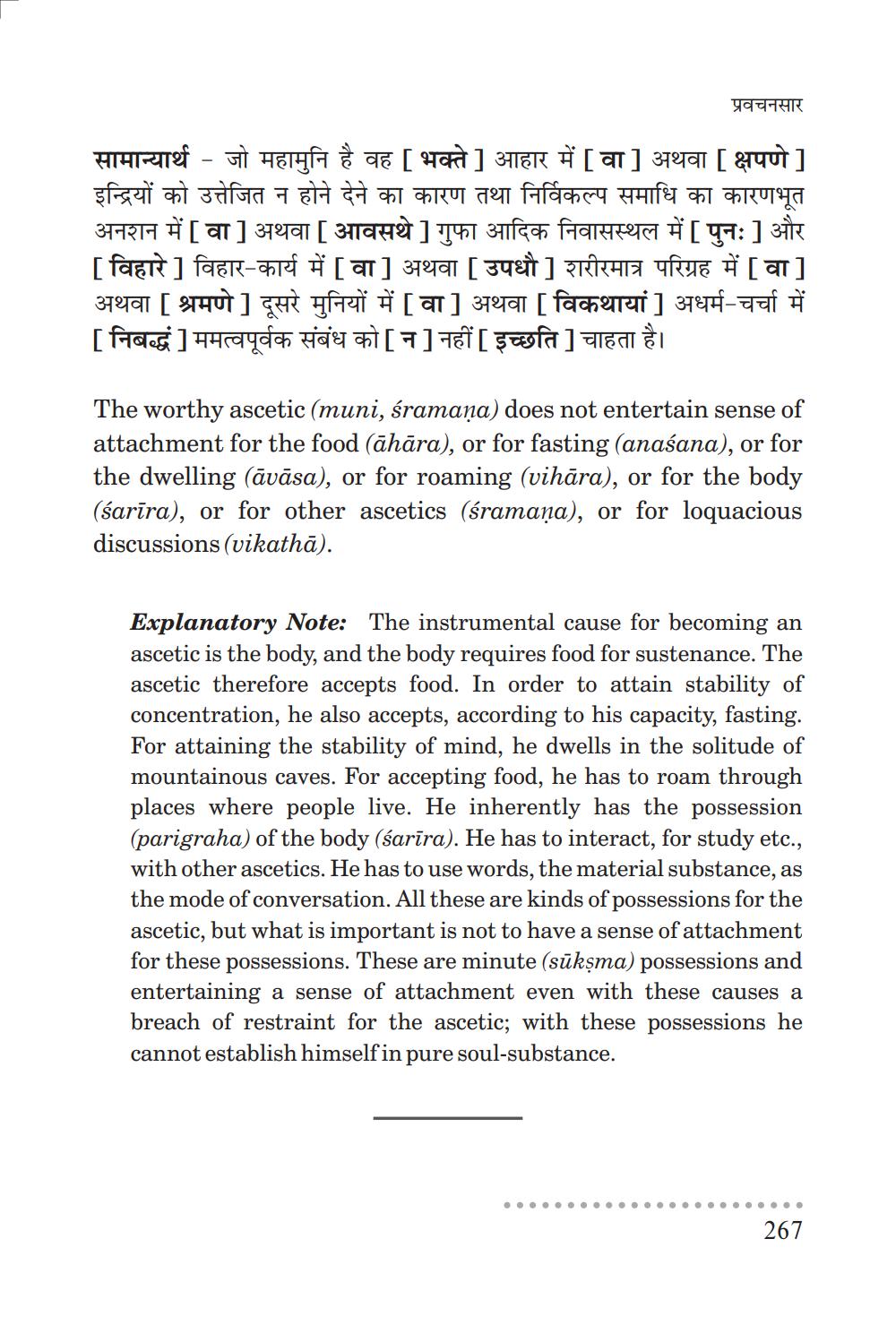________________
प्रवचनसार
सामान्यार्थ - जो महामुनि है वह [भक्ते ] आहार में [ वा ] अथवा [ क्षपणे] इन्द्रियों को उत्तेजित न होने देने का कारण तथा निर्विकल्प समाधि का कारणभूत अनशन में [वा] अथवा [आवसथे] गुफा आदिक निवासस्थल में [ पुनः] और [विहारे] विहार-कार्य में [वा] अथवा [उपधौ] शरीरमात्र परिग्रह में [वा] अथवा [ श्रमणे] दूसरे मुनियों में [वा] अथवा [विकथायां] अधर्म-चर्चा में [निबद्धं] ममत्वपूर्वक संबंध को [ न ] नहीं [ इच्छति ] चाहता है।
The worthy ascetic (muni, śramana) does not entertain sense of attachment for the food (āhāra), or for fasting (anaśana), or for the dwelling (āvāsa), or for roaming (vihāra), or for the body (śarīra), or for other ascetics (śramaņa), or for loquacious discussions (vikathā).
Explanatory Note: The instrumental cause for becoming an ascetic is the body, and the body requires food for sustenance. The ascetic therefore accepts food. In order to attain stability of concentration, he also accepts, according to his capacity, fasting. For attaining the stability of mind, he dwells in the solitude of mountainous caves. For accepting food, he has to roam through places where people live. He inherently has the possession (parigraha) of the body (śarīra). He has to interact, for study etc., with other ascetics. He has to use words, the material substance, as the mode of conversation. All these are kinds of possessions for the ascetic, but what is important is not to have a sense of attachment for these possessions. These are minute (sūksma) possessions and entertaining a sense of attachment even with these causes a breach of restraint for the ascetic; with these possessions he cannot establish himself in pure soul-substance.
........................
267




